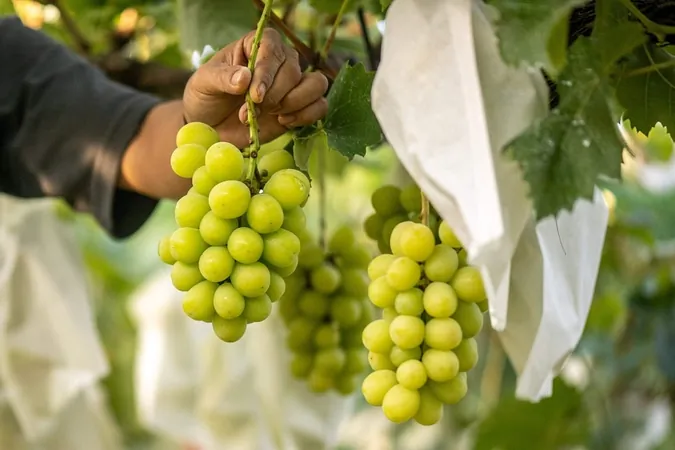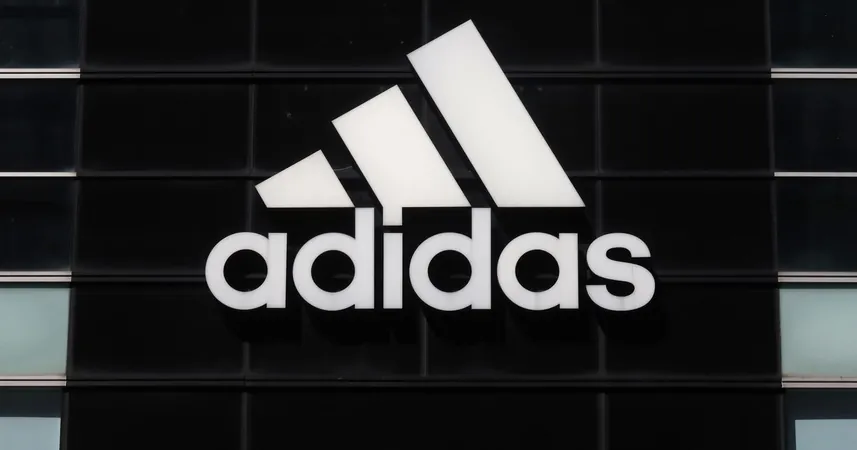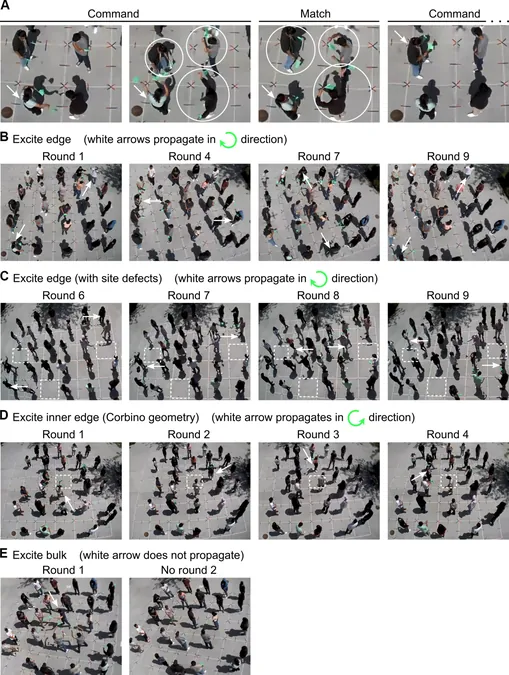
Alarm Bells Ring as Toxic Chemical Residues Found in Shine Muscat Grapes in Thailand!
2024-10-29
Author: Jia
Alarming Discovery of Toxic Residues
In an alarming turn of events, Thai authorities and consumer protection organizations have issued urgent warnings regarding the presence of hazardous chemical residues found in Shine Muscat grapes, exceeding permissible safety levels.
Collaboration and Findings
On October 24, the Thai Pesticide Alert Network (Thai-PAN) collaborated with the Thailand Consumers Council (TCC) and the Food and Drug Administration (FDA) to announce the grim findings of their recent tests. Out of 24 samples collected from various sources, 23 samples—nearly 96%—were found to contain concerning levels of pesticide residues.
Sources of Contamination
The TCC procured these grape samples on October 2 and 3 from multiple locations, including online shops, fruit markets, and supermarkets. In a surprising revelation, nine of the contaminated samples were identified as imported from China, while the origins of the remaining samples could not be traced, raising significant concerns about the regulatory oversight of imported produce.
Shocking Findings
Prokchon Usap, the coordinator of Thai-PAN, expressed her shock regarding the high contamination rates, describing the findings as "quite shocking". Among the most concerning was the detection of chlorpyrifos, an insecticide that has been banned in Thailand, in one of the samples. A staggering 14 harmful chemical residues were found in the other samples, surpassing the critical safety limit of 0.01mg per kilogram. These included multiple substances that have yet to be regulated under Thai law, such as triasulfuron and fludioxonil.
Risks to Consumers
Compounding the worries, Ms. Prokchon warned that these pesticides tend to accumulate in grapevine tissue, making them extremely challenging to remove, thereby increasing the risk to consumers.
Demands for Legal Action
In response to the crisis, the TCC has called upon the FDA to take firm legal actions against the importers of these contaminated grapes. Their demands include the disposal of tainted shipments, thorough inspections of remaining stock, and immediate recalls. They also urged swift action against companies that knowingly imported these unsafe fruits.
Official Remarks
In a follow-up statement, FDA secretary-general Surachoke Tangwiwat reassured the public that while 36 of the 50 detected chemical residues were within the safety limits, 14 substances remain unregulated, creating a cloud of uncertainty. He also emphasized the importance of washing fruits thoroughly before consumption.
Impact on Vendors and Consumers
In a visible response to the fallout, vendors in Nakhon Ratchasima’s Muang district have already started removing Shine Muscat grapes from their shelves, as consumer confidence plummets—even with deep discounts on the affected fruits.
Comparison with Malaysia
Interestingly, across the border in Malaysia, the Ministry of Health reported that their tests of Shine Muscat grapes showed no chemical residues above legal limits from 2020 to September 2024, analyzing a total of 5,561 samples of imported fruits and vegetables.
Background of Shine Muscat Grapes
Originally developed in Japan in 1988, Shine Muscat grapes are known for their large, yellow-green berries, crisp texture, and delightful low acidity. Apart from Japan, they are cultivated in countries such as South Korea and China.
Conclusion and Consumer Awareness
As the story develops, concerns surrounding agricultural practices and regulatory vigilance grow ever louder, prompting consumers to rethink their purchasing choices. Are these grapes still safe to eat? The debate is far from over, and it highlights an urgent need for stricter regulations and better consumer awareness. Stay tuned for more shocking revelations!




 Brasil (PT)
Brasil (PT)
 Canada (EN)
Canada (EN)
 Chile (ES)
Chile (ES)
 España (ES)
España (ES)
 France (FR)
France (FR)
 Hong Kong (EN)
Hong Kong (EN)
 Italia (IT)
Italia (IT)
 日本 (JA)
日本 (JA)
 Magyarország (HU)
Magyarország (HU)
 Norge (NO)
Norge (NO)
 Polska (PL)
Polska (PL)
 Schweiz (DE)
Schweiz (DE)
 Singapore (EN)
Singapore (EN)
 Sverige (SV)
Sverige (SV)
 Suomi (FI)
Suomi (FI)
 Türkiye (TR)
Türkiye (TR)